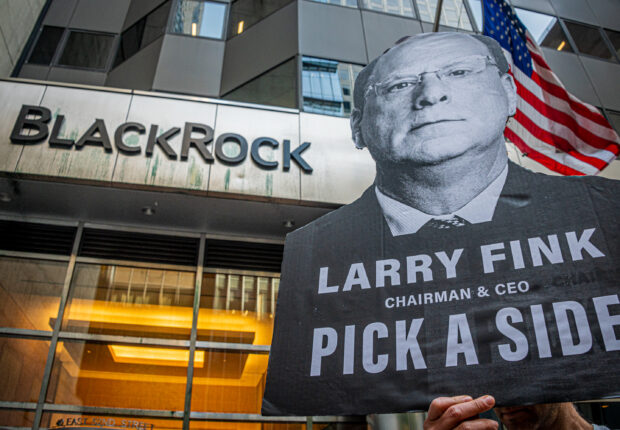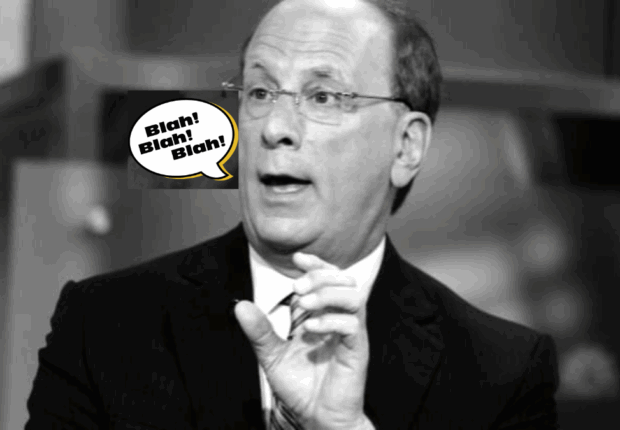The letter voices for concern over the lack of conditions on public financial support for industry practices that harm the public good and exacerbate climate change
March 27th, 2020: Today, signaling concern over the Federal Reserve handing public money to a private corporation, 30 groups sent a letter to the Fed raising critical questions over the recently announced deal with BlackRock to handle the new multi-billion dollar debt purchasing programs on behalf of the U.S. central bank. The letter cites potential conflicts of interest, lack of transparency and oversight in the details of the contract, concentration of financial power, and lack of limitations on public financial support for industry practices that harm the public good.
The letter also expressed concern that the deal does nothing to address the ongoing threat of catastrophic climate change, which represents a substantial exogenous risk to the financial system and could throw the financial system into further chaos even as COVID-19 is still being addressed.
“This move by the Fed gives BlackRock additional power and puts it even more squarely at the center of the financial system,” said Ericka Taylor of Take on Wall Street. “What oversight will there be to ensure that while we help our economy through the current crisis of Covid-19 we don’t lock ourselves into future crises brought on by climate change?”
The letter pointed out that corporate bond-buying programs may become stealth bailouts for fossil fuel companies if adequate climate safeguards are not applied, and called on the Federal Reserve to not prop up industries destroying the climate, creating further risk to the financial system. Many of the organizations signed onto the letter will be asking Congress to take legislative action to prevent this.
“Helping our economy get through this global pandemic is vitally important, but we can’t afford to accelerate climate change in the process,” said Diana Best, finance strategist with the Sunrise Project, “Companies that continue the expansion and production of fossil fuels are inconsistent with goals to manage the climate crisis and long-term financial stability; propping them up without clear Paris-compliant transition plans is unacceptable for any prudent fiscal policy.”
The letter points out that BlackRock was also hired after the 2008 financial crisis, and while the asset manager profited massively from that, the American people never fully recovered. As a 2017 New York Times analysis found, while the average American household was still thirty-per-cent poorer, in net worth, than in 2007, the top ten per cent of households were twenty-seven per cent wealthier than before the crisis.
“In the midst of the COVID-19 pandemic, concentrating even more economic power in the hands of the largest asset manager in the world is risky and dangerous. The American people need fair economic policies that put our health and financial stability first, not line the pockets of Wall Street executives and the fossil fuel industry,” said Rachel Curley, democracy advocate for Public Citizen’s Congress Watch division.
##
Fore more information or interviews contact:
Myriam Fallon, myriam@sunriseproject.org, 708.546.9001
The letter signatories are:
350.org, 350 Butte County, 350PDX, Amazon Watch, American Economic Liberties Project, Center for International Environmental Law, Earth Ethics, Inc., Earth Guardians, ESG Transparency Initiative, Fossil Free California, Friends of the Earth – US, Greenpeace US, Idle No More SF Bay, Indigenous Environmental Network, Midori Law Group, New York Communities for Change, Oil Change International, Peoples Climate Movement – NY, Preventable Surprises, Public Citizen, Rainforest Action Network, Reclaim Finance, Revolving Door Project, Sierra Club, Stand.Earth, The Sunrise Project, Take On Wall Street, Transition US, Urgewald, Women’s Earth and Climate Action Network (WECAN)
The full letter can be found here
For context and background
On the threat of climate change to the finance system see: Climate Change Threatens the Stability of the Financial System, Center for American Progress
On the financial risk of passive index funds and the re-concentration of corporate ownership see: Hidden Power of the Big Three, Cambridge University Press

